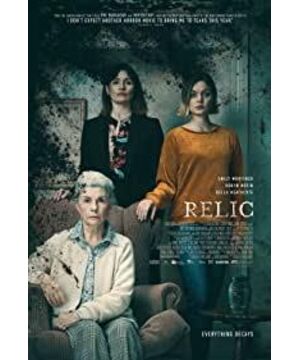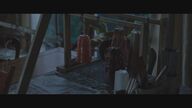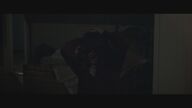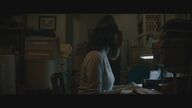As a horror movie, the film has obvious advantages and disadvantages. The advantage is that the whole film gives a sense of exquisiteness in appearance. The symbolic scenes, the use of light and perspective, and the performance of the actors are all meticulously crafted. Even the final form of the grandma is as good as her handmade candles. Art. The disadvantage is that first of all, the horror passages are too old, and they are very boring, difficult to substitute and not scary. Secondly, the main theme of the core is too obscure and unclear, and confused. The symbolic pictures and plots that are carefully portrayed lack a clear connection with the theme, so the audience needs to fill it in their own brains (and I don’t know whether the brains are correct. ), so people are easily confused and feel alienated.
So when I talk about the theme of this film, most of my arguments are inevitably made up by my brain. I don't know whether it is in line with the idea of the main creator. Friends who disagree don't have to say "You don't think right" or "You think too much", because this film is really confusing.
I turned a lot of comments before watching this film, and most of them agree that this film expresses the grief for the widowed elderly and promotes the care of children and the elderly. I agree with this level, but I can't regard it as the core theme of the film. The reason is that the role of grandmother is not set by ordinary elderly people, but patients with Alzheimer's disease. Her demonization in the film is also closer to the artistic description of the gradual deterioration of the symptoms of Alzheimer's rather than just portraying ordinary lonely old people.
In fact, the various manifestations of grandmother becoming weird and even turning into a ghost near the end are no strangers to people who have seen some Alzheimer's patients. Although Alzheimer's is very common, it has always been in a very awkward position in the public's perception. Most people ignore or avoid it. Many people think of Alzheimer’s only about memory loss, loss of self-care ability, etc., but in fact, a considerable number of patients are still physically strong, and mental illness makes their temperament and behavior very difficult to cope with. My great-grandfather was fierce and irritable after suffering from Alzheimer's. He often beat his great-grandmother to bruises. This is what I have seen with my own eyes. The mother-in-law of a friend of my mother suffered from Alzheimer's and was taken care of by her daughter-in-law at home. He did not say that the son-in-law was a robber and chased and beat him. My former neighbor was a well-mannered old professor. After suffering from Alzheimer's, his son quit his job to take care of him, and it was miserable. Not to mention physical conflicts, it is simply unimaginable that the old professor can throw excrement on others at every turn, and smear it all over the wall. In this process, the patient in the eyes of relatives, is it not like the movie, the original familiar appearance gradually fell off like rotten skin, revealing a strange and incomprehensible existence.
Then looking back at the many images in the film, it can basically correspond to this theme. The house is actually a reflection of the grandmother (just as the old house in the forest that has been demolished can correspond to the grandmother's father who also suffered from Alzheimer's disease). The gradual spread of mold and the decay of the house corresponds to the deterioration of the grandmother’s condition and the chaotic arrangement of items Corresponding to the collapse of the old man's consciousness with falling full of dust.
In this story, Alzheimer’s is family hereditary. The stained glass windows that were removed from the old house and installed on the big house have many close-ups. The image of the spread of mold on it is obviously that the editor deliberately wanted the audience to notice. The meaning of this "inheritance" is easy to think of heredity. The mother had seen her grandma go to the old house many times in her dreams, and she was as ghostly as her father, and fell to the ground, further implying this point. The scar that the daughter saw on the mother's body at the end of course, completely showed that the same fate would also befall the mother.
And here, one of my biggest doubts when watching the movie has also been explained to some extent, and that is what black ghosts often appear in the movie. In fact, until the end, I was stunned by this. Those ghosts didn't even run out to scare people. They just appeared flat from time to time, and they were too unqualified as inherent props in horror movies. But in the end, when I saw the final black form of my grandmother, and then connected with the concept of family inheritance, I roughly understood. Those ghosts are mostly old people who had dementia in their previous homes and finally ghosted. They are here as an image of a curse-like genetic disease, like a haunting shadow over the family. Therefore, grandma's fear, whether it is for ghosts or for being alone, is not just because of the mentality of the lonely old man, but the fear of getting worse by herself. She realized that she was more and more not herself, unable to control herself, and her consciousness dissipated, thinking of the ending of her ancestors, she would naturally be afraid of falling into the same fate.
The horrible episodes experienced by the mother and daughter obviously represent the psychological state of the family caring for the patient under tremendous pressure. The various abnormalities of furniture and utensils-strange noises, washing machines running around by oneself, pockets breathing inexplicably, etc., are all in response to various abnormal behaviors of patients with Alzheimer's disease. Although everyone knows about Alzheimer's, this kind of symptoms that can be blamed or even mad cannot be understood without personal experience. And the patient's unpredictable and unintelligible behavior brings family feelings, isn't it just like the weird situations in the film? In the end, the plot in which the grandmother becomes a ghost chasing the mother and daughter is no stranger to those family members who were beaten by the patient at every turn.
The most concentrated image of this feeling is the labyrinth that my daughter fell into—there are messy things everywhere, mold everywhere, the door doesn’t know where to lead, and I can’t get my head no matter how far I can run. Way out. This is because Alzheimer’s disease is still incurable. Once it develops, and if it’s frenzied, it’s a bottomless pit that is almost invisible to the carer. (For this reason, many nursing homes are unwilling to hear that the elderly are patients with dementia. Accepting, it’s true that sometimes you can’t hire a happy nanny for high wages). But the family can't leave the old man behind, so they can only continue to panic and despair.
But this situation, the film can not give any solution, because this matter is unsolvable. In the film, the mother and grandmother are obviously not very close, and my life is full of hectic and anxious. I haven't talked for a long time, and even when I come back to find my grandmother, I have to be busy with work. And the mother did not know the daughter's resignation long ago, just like a copy of the previous generation. In modern society, it’s normal for family members to be separated from each other. There is less communication in their respective spaces and more isolation. In this case, especially in extreme situations such as Alzheimer’s, taking care of the patient means one’s own life. Will be destroyed to a greater extent. If you stay in the interpretation of "come home often" and "caring for lonely old people", you still can't touch the deep sense of despair in this film. However, the mother who almost left her at the end of the film finally returned to her grandmother, and the daughter also lay behind her mother, which meant that in this situation where there was no way and no way out, the bond of love could only hold on in pain. Although love is not a solution, it can't solve anything, but after all, it allows us to go on without regret.
The grandmother shed her human skin and eventually turned into a black ghost, but it was not the hideous existence as imagined. On the contrary, her aging face still carried the childlike ignorance and helplessness, which meant that her consciousness was completely dissipated and returned to The point of origin. In the end, the old man can only be taken care of as an ignorant child again, instead of letting her fall to the floor and die alone like her ancestors. This scene inexplicably reminds me of my great-grandfather. He returned to his childhood state in the last period of his life. He probably knew that he might bring danger to the people around him, so he would take the initiative to reach out and ask great-grandmother to tie him up every night.
Like a house covered with dust, gradually collapsed and flooded with sorrowful tears.
View more about Relic reviews











